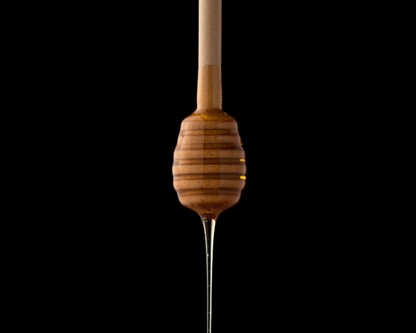Tabletops during holiday seasons: The significance of honey during Rosh Hashana guide, Jewish kitchen tips
The Significance of Honey During Rosh Hashana Guide
5 July 2022
In a few months, the Jewish community will be celebrating Rosh Hashana. This is a holiday commemorating the creation of the world and bringing in the next new year, undoubtedly including special foods, mitzvahs and traditions. If you are celebrating or have ever celebrated this holiday then the chances are you have also found a Rosh Hashana honey dish sitting in the centre of your beautifully prepared table.
In regard to the Jewish affinity with food, honey has played a large part for thousands of years, whether it’s being drizzled onto beef brisket or utilised as a dip for a sweet, green apple. But you might not realise why honey is so important to the Jewish people. In fact, honey plays a prominent role in many aspects of the scripture, which is why it is so cherished as a tabletop necessity today. Take a quick look at honey’s Jewish history below:
Tabletops During Holiday Seasons: The Significance of Honey During Rosh Hashana
The Land Of Milk And Honey
In the Exodus, the Promised Land of Judaism is literally described as a land flowing with milk and honey. In this way, the scriptures used honey as a representation of what was sweet and good, which then trickled down into how the creation of Judaica is celebrated today.
This is also referenced within Jewish Rosh Hashana prayers. For instance, the prayer “may It be Your will, Lord our God and God of our ancestors, that you renew for us a good and sweet year.” In this instance, honey is not specifically mentioned, but in Jewish culture it has since been used to represent and signify the “sweet” beginning of the year, bringing honey to the forefront of any Jewish table.
The 40 Year Wilderness
In the Torah, honey also appears as a form of sustenance and hope for Israelites escaping from Egypt. Prior to entry to the land flowing with “milk and honey”, God cursed the Israelites with a total of forty years wandering the wilderness, allowing time for an unbelieving generation to perish before reaching the promised land.
Here, an edible substance named Manna was rained down upon the Israelites from heaven, giving them a way to eat and survive whilst painstakingly navigating the dry lands of the desert. This is described as a miraculous pastry fried in honey, despite the fact it could taste like whatever one imagined.
Honey In Jewish Tradition
Due to these mentions within the scripture, the sweet and sustaining characteristics of honey have since been associated with Jewish values and ideals. There is such an emphasis on food, both sweet and savoury, within Jewish culture, and honey is right at the heart of it. On the table, it can be used as a dip for challah and apples, or it can even, in some instances, be presented in its rawest form of edible honeycomb.
This is due to the Hebrew word for “raw” being “chai”, which is also translated as “life” in the Jewish scriptures. Whichever way it is utilised, honey has undeniably become a staple of Jewish culture and tradition, sweetening up any holiday with its unique, beautiful taste.
Comments on this The Significance of Honey During Rosh Hashana article are welcome.
Home Articles
Residential Architecture
Comments / photos for the Tabletops During Holiday Seasons: The Significance of Honey page welcome





